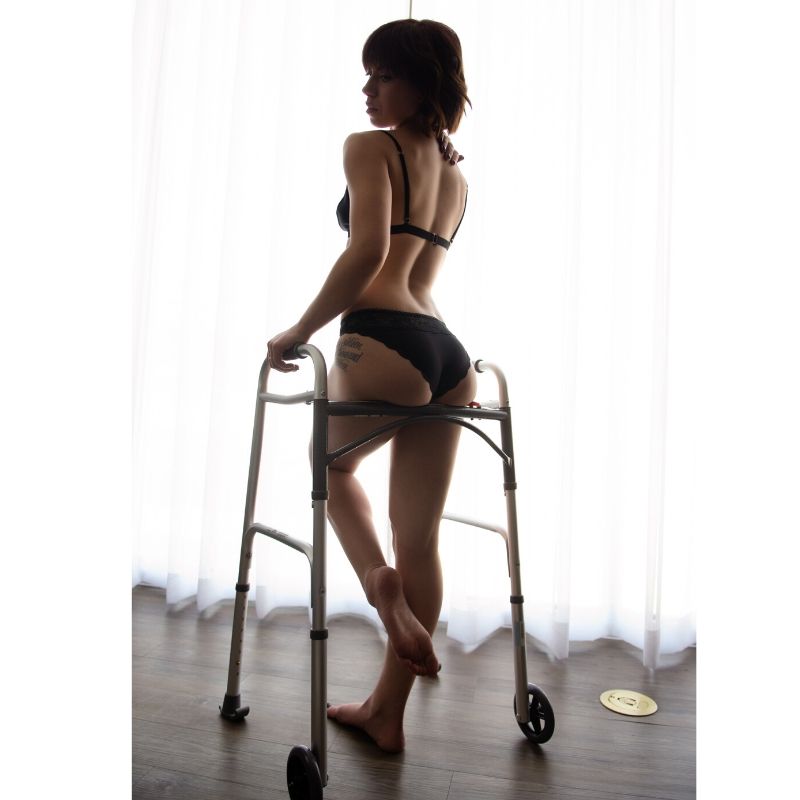
Hello! My name is Josie. I’m a 25 year old wife, mother, and Independent Contractor with Ehlers-Danlos Syndrome and over 30 comorbidities. I share all aspects of my disabled life on Instagram at ‘See Josie Smile.’ I think that society views people with disabilities as unhappy and I really wanted to turn that idea on its head. I’m disabled AND I’m happy, as you’ll see in most of my Instagram posts.
Looking through your photos on Instagram you seem very sexually confident, and happy with your body, has it always been this way?
I would agree that I am pretty sexually confident, but I wouldn’t say that I am happy or unhappy with my body. I don’t really think of my body in terms of aesthetics, but instead, I think about the way that it functions.
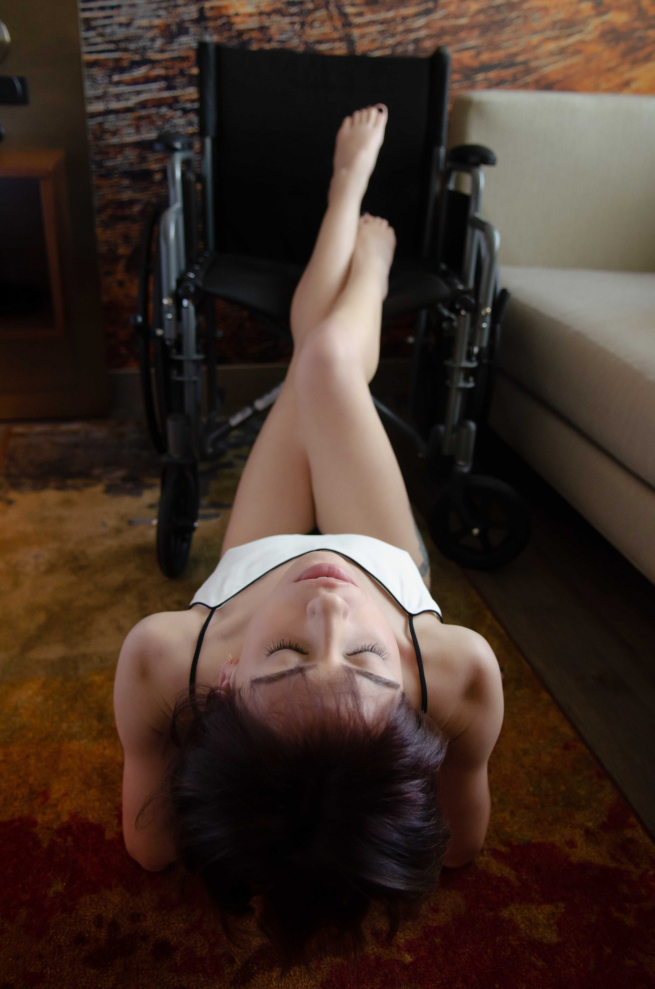
Aesthetically, it may be relatively in line with what society finds attractive, but I’m just not concerned with that. I’m more interested in feeling sexy by my own standards and of course, I would like my partner to find me desirable as well. I’ve gone through a long journey with my body before landing here. I’ve always had a pretty strong connection with my sexuality, but because of my sexual assault and trauma history I questioned how much of that was from grooming and how much was natural.
It turns out that a lot of it originated from me.
I went through periods of time where I didn’t even want to acknowledge that I had a body let alone a body that could be sexual. Chronic illness and pain can easily isolate your mind from your body so I’m thrilled to have found a way to realign the way I think about and treat my body.
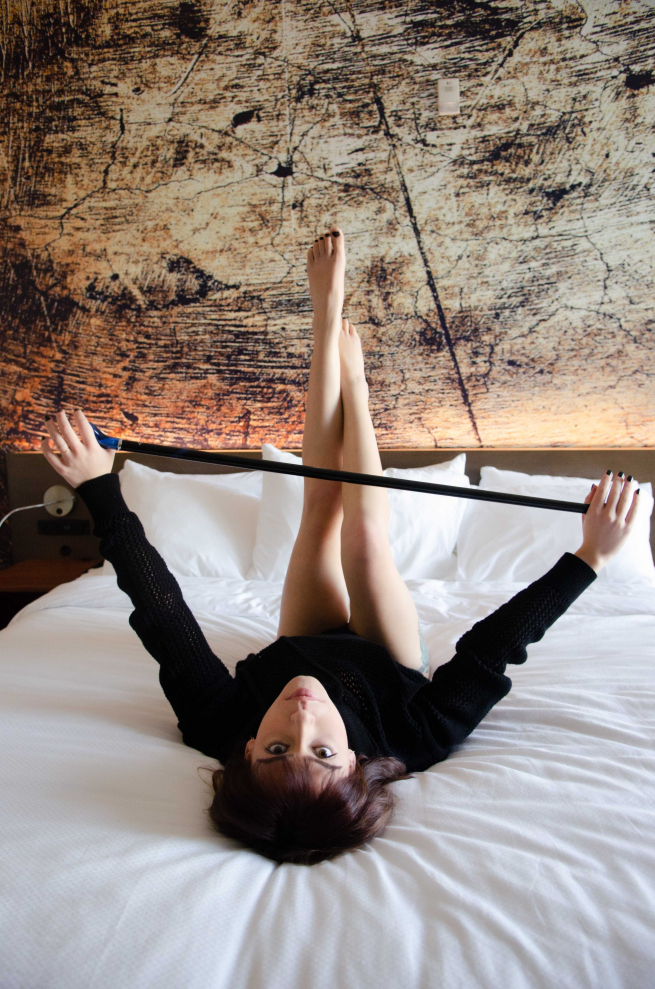
What advice would you give to those who aren’t quite there yet on their body confidence journey?
Honestly, I’d say it starts with letting yourself feel whatever comes naturally. Are you mad? Sad? Discouraged? That’s all fine. Once you acknowledge those feelings you can move on to the next step in your journey.
For me, the tipping point was when I realized that I have the body that I have and that isn’t going to change. Once I stopped waiting for something to improve or for my circumstances to be different and took it upon myself to make the changes I desired, I was able to start living life. I was just wasting time staying upset about the hand that I was dealt because there isn’t much that can be done about it.
I started to look for modifications and quickly realized that a lot of the things that I thought were out of reach are still possible even if they look a bit different. I also draw a lot of strength from the chronic illness community on Instagram. For the most part, the people that I interact with are incredibly supportive and encouraging. It’s always nice to have somebody to talk to that can relate and offer tips of their own. You are not alone.
You’ve spoken about not letting your conditions get in the way of passion or pleasure – how have you managed that, and have you got any advice for others?
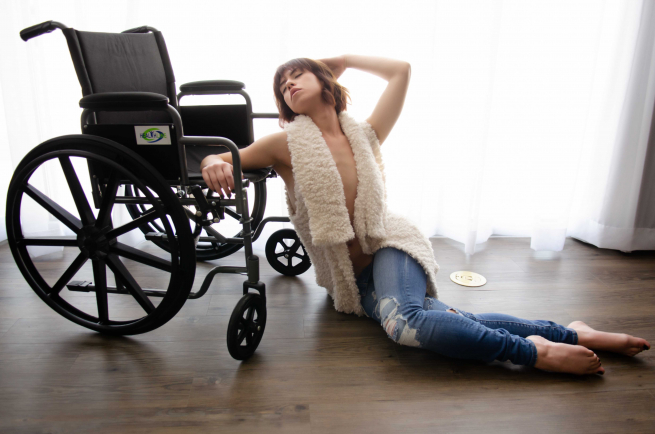
Modifications! I make adjustments to everything I do. Maybe I can’t be on top every time I have sex, but that’s okay! I can still give and receive pleasure in other ways. If you try one modification and it doesn’t work DON’T GIVE UP!
Sometimes it takes a few tries before I find a comfortable way to go about doing something I enjoy. When talking about sex specifically, there are some online resources available, but a lot of it comes down to trial and error.
For example, if you can’t be on your hands and knees, but like doggy style maybe try staying in that formation, but laying on your side. Some people call this “lazy doggy” but I don’t like the insinuation that it’s lazy. I prefer to call it modified doggy. There are also other rear-entry positions that may offer a similar sensation and be more accessible.
Trying new things is part of what makes it fun. You may even invent new positions this way!
We love the term ‘modified fitness’. What does it involve and how can we join in?!
Modified fitness is basically the same thing as modified sex or anything else. It all comes down to making adjustments based on what your body is telling you. For instance, I like to do assisted squats. I hold on to TRX straps or something else to help hold my weight and balance. This changes the exercise a bit, but it’s still effective and it protects my joints.
The biggest modification is listening to your body. If you listen, your body will tell you what is or is not an acceptable modification. If it hurts or feels unsafe, stop. There are some exercises that I cannot do at all and that is okay.
Another way I like to think of modifications is by comparing it to customization. Really, all I’m doing when I modify is customizing. I customize my actions to my body and its needs. Referring to a Physical Therapist is a great way to get started, but another way is by starting body weight exercises at home and seeing what feels good. I was always more confident trying modifications at home before taking them in public. There are some people who approach me and try to correct my form, but I just let them know that I’m disabled and I’m using modifications to keep exercise accessible. The person that I’m speaking with almost always gives me kudos for staying active and then walks away with more information than they had before we spoke.
I think it’s really important not to compare ourselves to anyone else (disabled or not). My main concern is moving my body and being kind to it. Maybe you are far from able to lift weights. I started my fitness journey by standing up once an hour. This became walking the hallway, which then became walking to the mailbox, then around the block, and so on. If you are unable to stand or walk then the equivalent might look like doing arm circles once an hour and progressing from there. I also do not have a fitness goal in mind other than what I stated earlier, which is to move my body and be kind to it. Who cares if you never lift weights or never go to a gym? If you are making progress of any kind that’s good enough!
Finally, what have been your three biggest life lessons so far? What are you most proud of?
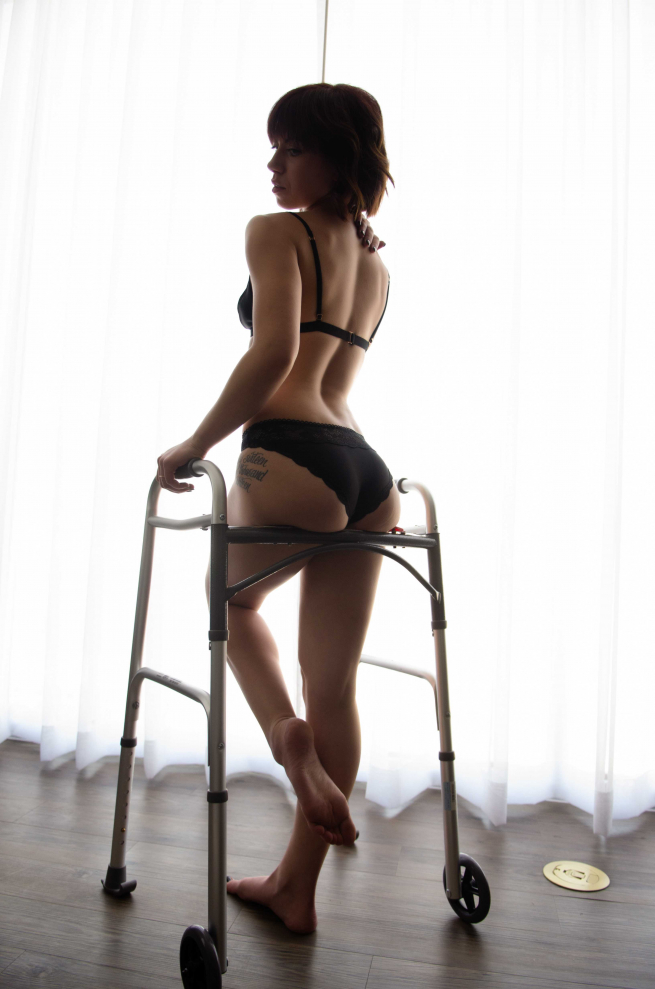
I think my 3 biggest life lessons so far have been that everybody is different and we all have our own struggles whether or not they are visible. Living for others won’t ever make you happy, and nobody has a right to tell you how to live your own life.
I’m most proud of the fact that I have put so much effort into learning how to live my life to the fullest and educating the public on this at every opportunity. Neither of these things are easy, but the payoff is extraordinary.
I’m still making progress in these areas and I don’t foresee myself ever thinking that I’ve grown enough for a lifetime. I guess you could say I’m proud that I have persevered through unfathomable amounts of discomfort to educate myself and others on living a good life with disabilities.
Thanks to Josie for featuring in this interview. Follow her on Instagram at See Josie Smile and read her blog for more insights.
Follow our Undressing Disability campaign on Instagram, Twitter and Facebook.
